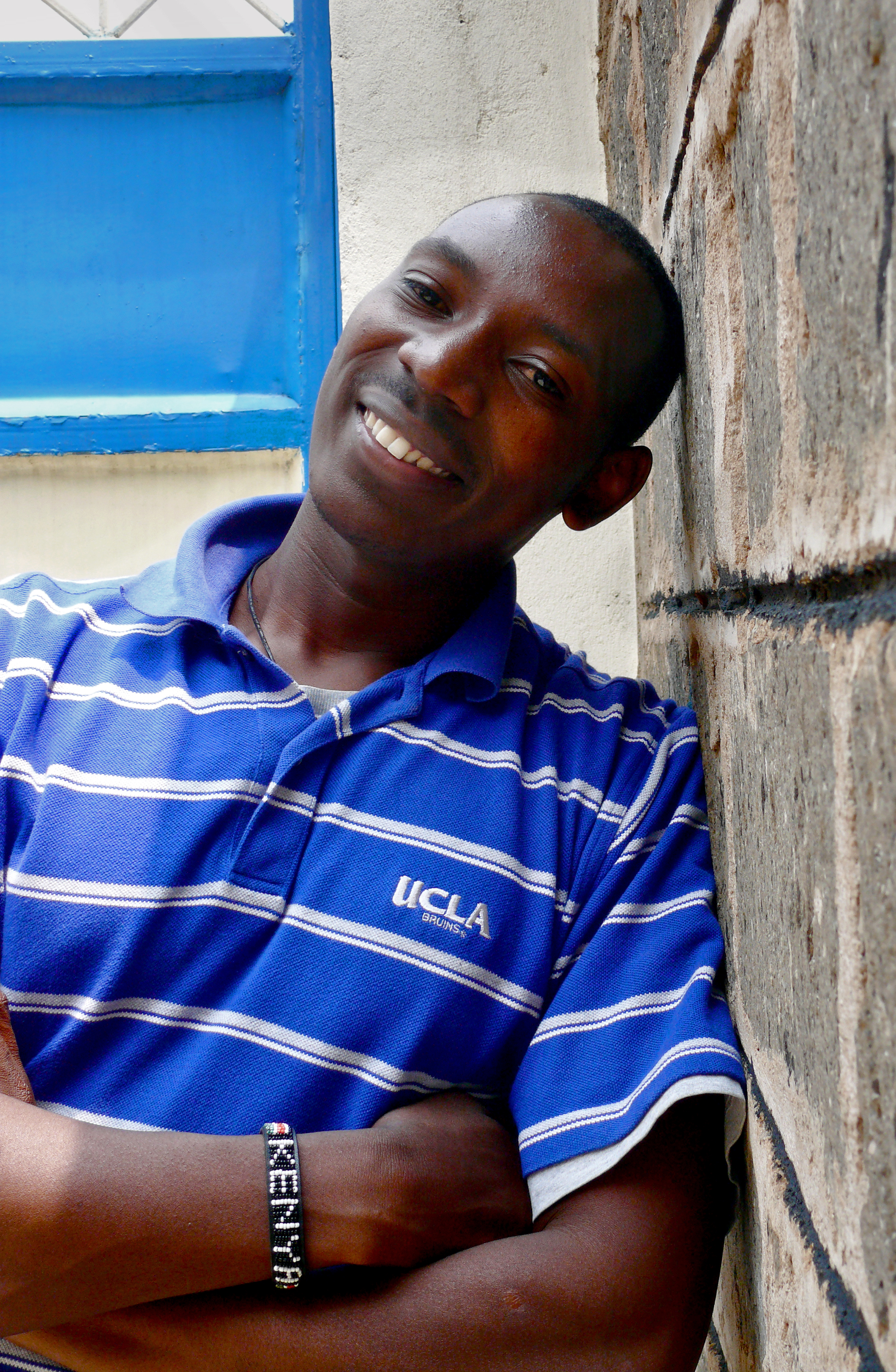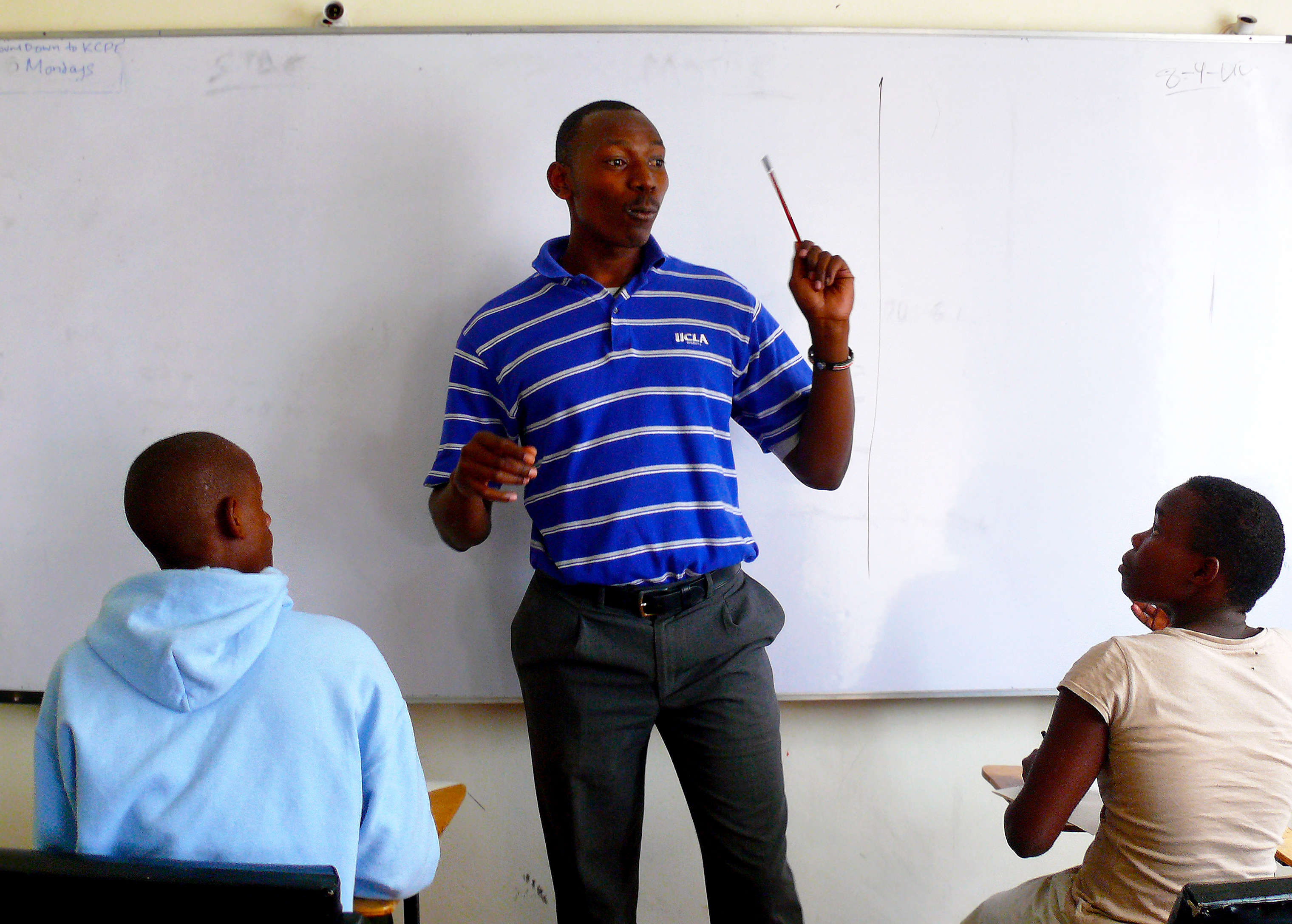
Grading student papers in his Nairobi school, former UCLA Fulbright Scholar Erustus Ouko epitomizes cross-cultural exchange ““ his beaded Maasai bracelet showcases his Kenyan pride, while his blue-and-white striped UCLA polo shirt hints at his time spent as a Bruin.
Hanging on the wall behind him are two clocks ““ one displaying local Kenyan time, and the other labeled, “Los Angeles” ““ bridging the vast distance between Nairobi and Westwood, Ouko’s home away from home.
Any visitor to the school, funded by Los Angeles-based non-governmental organization African Kids in Need, will notice that the UCLA influence goes beyond Ouko’s polo shirt.
At the school, a pilot project launched in 2009 by AKIN executive director Paul Miller, students are taught in a student-centered, participatory manner, which sets it apart from the majority of Kenyan schools.
“At many Kenyan schools, the teacher gives information, and the students absorb it, word-for-word. But in my classroom at AKIN, teaching is about people exchanging information, in a participatory fashion,” Ouko said.
This educational model, which Ouko said he observed at UCLA, has been implemented at the Nairobi school, where he is one of two full-time teachers.
According to Kenya Wildlife Service Director Julius Kipng’etich, it is exactly this kind of discussion-based teaching that the Kenyan education system needs.
“In our schools, students are taught to reproduce, not think independently,” he said, speaking at a lecture held by the League of Young Professionals, of which Ouko is an officer. “Kenya needs to create thinkers, not merely people who can reproduce notes.”
In addition to incorporating participatory teaching methods, Ouko blends traditional academic instruction with interactive activities, which include dancing, writing to Californian pen pals and taking field trips to soccer games, among other experiences.
However, cultural exchange is a two-way street: While the AKIN school has benefited from Ouko’s application of his UCLA education, members of the UCLA community likewise learned about Kenya through interaction with Ouko, both in and out of the classroom.
During his year at UCLA, as part of the Fulbright Foreign Language Teaching Assistant program, funded by the U.S. Department of State, Ouko taught Swahili, took classes in public policy and English as a second language, recited original poems at a number of open mic events and even did a public lecture titled “What America Needs to Know About Africa”.
Recognizing his role as a cultural ambassador while at UCLA, Ouko opted to wear quintessentially Kenyan garments ““ wraps made of Kikoy fabric, sandals fashioned out of tire treads and beaded Maasai bracelets, all interspersed with T-shirts and black dress pants.
He also took UCLA students out to eat Kenyan food, such as ugali, a dough-like staple food made from maize flour, and sukuma wiki, a vegetable dish usually made with kale.
While introducing Kenyan culture and cuisine to his students and classmates, Ouko also learned about the American way of life, which was, at first, surprising.
“The first day, I thought America was plastic ““ it was so clean, so organized,” he said.
But through his observations, both at UCLA and while traveling throughout the country, his initial culture shock wore off, and his perception of America changed.
“Most Kenyans believe that life in America is glamorous ““ that you will automatically have a good life and make lots of money,” he said. “But I realized that even in America, you have to work hard to be successful.”
Though living in America sprinkled realism into his previously romanticized notions of the American Dream, Ouko did observe, during his time at UCLA, that there are many systems in America worth replicating in his home country, albeit with a Kenyan twist.
“I’ve seen how clean and organized America is, and it gave me a picture of how Kenya can be,” he said.
To help facilitate his work in Kenya, Ouko hopes to return to UCLA to earn a master’s degree in public policy, though this goal has been delayed because of difficulties obtaining a U.S. Visa.
But according to his colleagues, Ouko will inevitably find success no matter which direction his life takes him in.
“Erustus is the kind of guy who wants to accomplish what he has started, and he wants to do it well,” said Walter Ong’ala, AKIN project manager. “He has a heart for needy kids and will even stay at the school late into the night because of his passion for helping kids.”
Eating rice and sukuma wiki with Ouko and the students at the Nairobi office, this passion is strikingly evident. Whenever Ouko speaks, the room is engulfed with the children’s laughter.
“I’m a jolly teacher ““ the kind of teacher that can carry kids on my back,” he said. “When I teach, I try to shed the image of the “˜mean’ teacher, and bring joy to the children.”
